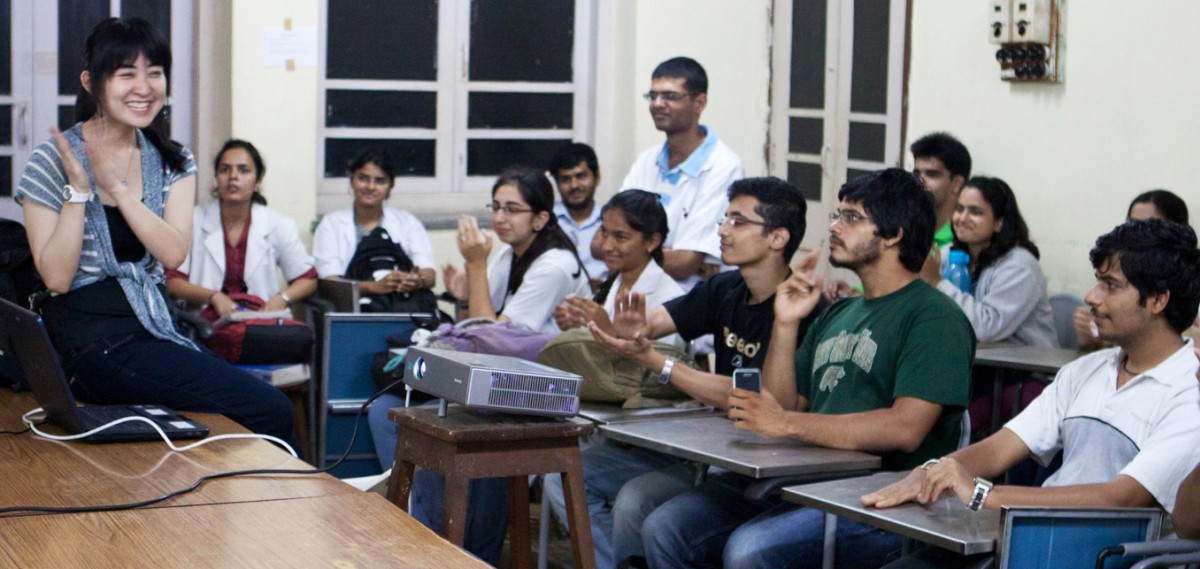While most graduate students are worried about their next exam or an upcoming experiment, Carmen Kut, an M.D./Ph.D. student in the Biomedical Engineering Department at Johns Hopkins School of Medicine, is quietly immersed in her latest endeavors to create meaningful medical products for those in need. Since her time as an undergraduate at Johns Hopkins University, Kut has been a standout success; she was chosen as a member of the All-Star Academic First Team in 2008, and was awarded the prestigious National Institute of Health F30 fellowship, as well as the Siebel Scholarship during her graduate degree.
Looking to enrich her experience, Kut attempted to find an outreach program allowing her to travel overseas. Frustrated with the lack of options, Kut started her own program, Medical and Educational Perspectives (MEP), to better advance global health education.

After initially receiving resistance, she persevered and initiated the program using a network of contacts from her hometown in Hong Kong, while also recruiting colleagues throughout the US. In their first excursion, a small group of MEP volunteers traveled to a rural school in China and taught health care classes to high school students. Over the next few years, the program grew to 10 chapters in over three continents, serving schools in China, India and Tanzania. Kut transitioned the student program into a Maryland-based nonprofit organization by her senior year, while managing to graduate at the top of her class.
After Kut was accepted to the Johns Hopkins School of Medicine, she took her first two years as a medical student to reinvent MEP, with a new mission statement switching the focus from education to the production of simple medical innovations for use in less medically equipped areas.
Kut applied for and was awarded a $125,000 grant from the PhD Innovation Initiative from Hopkins. Kut and her team used the money to develop two courses for MEP volunteers to learn the clinical and business acumen necessary to bring inventive ideas to commercialization and placement in global clinics. Using multiple connections to help drive her cause, she reached out to professors, physicians, CEOs and regulatory staff to teach these courses. The program has now blossomed into two full semester courses.
MEP volunteers also visited clinics and hospitals in India to speak with clinicians and patients to discuss their needs. Using this information, teams of inventors designed items and presented to business CEOs and Hopkins physicians to gain insight and feedback about their products.
Through the combination of education, innovation and the goal of implementing meaningful changes in less fortunate communities, MEP has become a success story for both Kut, her team and the Hopkins community. After running the program for 10 years and supporting close to 600 volunteers, Kut remains focused on what’s to come. When asked about the future of her program, she emphasized a desire to expand the program to include outreach in the local Baltimore community, while maintaining a steady presence in overseas chapters, as well as to return in some capacity to its roots in education.
Clearly, Kut is prepared to take on the many challenges currently facing global healthcare, and Hopkins should be proud to call her one of their own.
If you want to get involved in MEP, please contact [email protected] or visit their blog at http://mepjhu.tumblr.com.